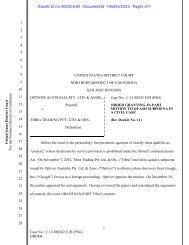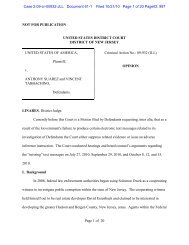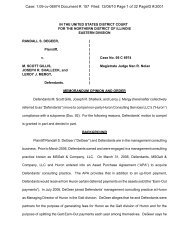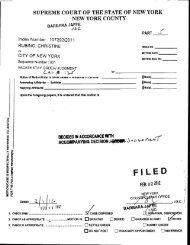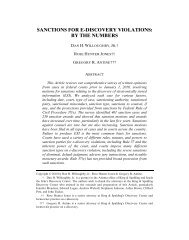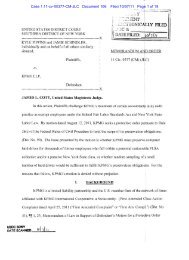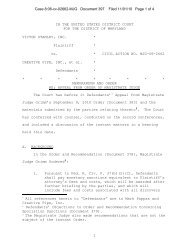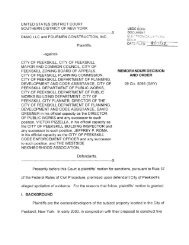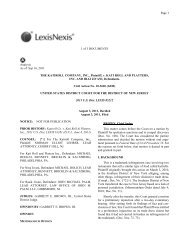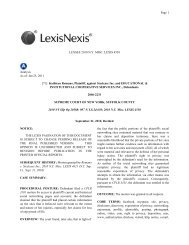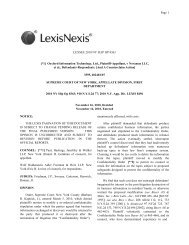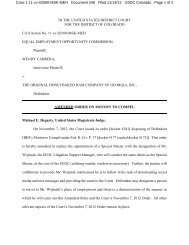Rimkus Consulting Group Inc. v. Cammarata - Ballard Spahr LLP
Rimkus Consulting Group Inc. v. Cammarata - Ballard Spahr LLP
Rimkus Consulting Group Inc. v. Cammarata - Ballard Spahr LLP
Create successful ePaper yourself
Turn your PDF publications into a flip-book with our unique Google optimized e-Paper software.
Case 4:07-cv-00405 Document 450 Filed in TXSD on 02/19/10 Page 106 of 139<br />
To the extent the breach of fiduciary duty claim against Bell is based on<br />
misappropriation, it also satisfies the elements of preclusion. The May 11, 2009 judgment<br />
is valid and final and the parties in both suits are the same. <strong>Rimkus</strong>’s argument that the<br />
issues were not actually litigated in Louisiana because the Louisiana court applied Louisiana<br />
law is not supported by the record. The Louisiana court held applied Louisiana law to “the<br />
claims of the plaintiffs”—<strong>Cammarata</strong>, Bell, and DeHarde. The Louisiana court stated that<br />
it invalidated the Texas choice-of-law provision and the noncompetition and nonsolicitation<br />
covenants in the Employment Agreement under Louisiana law. But the Louisiana court did<br />
not state that it applied Louisiana law to <strong>Rimkus</strong>’s claims involving the misappropriation of<br />
confidential, proprietary, and trade secret information or to the claims for breach of fiduciary<br />
duty and disparagement. <strong>Rimkus</strong> asked the Louisiana court to apply Texas law to its<br />
reconventional demand. The motion for summary judgment <strong>Cammarata</strong>, Bell, and DeHarde<br />
filed to dismiss the claims in <strong>Rimkus</strong>’s reconventional demand did not deal with<br />
noncompetition or nonsolicitation claims, which had been decided by the Louisiana court in<br />
2007, but rather with <strong>Rimkus</strong>’s claims for misappropriation of trade secrets or proprietary<br />
information, breach of fiduciary duty, and disparagement. Both sides briefed these issues in<br />
the motion for summary judgment under Texas law. In oral argument on these issues,<br />
counsel relied on Texas law. The Louisiana court’s order states that it was based on a review<br />
of “the evidence, the law and the arguments of counsel.” (Docket Entry No. 309, Ex. G).<br />
<strong>Rimkus</strong> also argues that issue preclusion does not apply because the Louisiana court<br />
“did not express any basis” for its ruling on the misappropriation, breach of fiduciary duty,<br />
106



